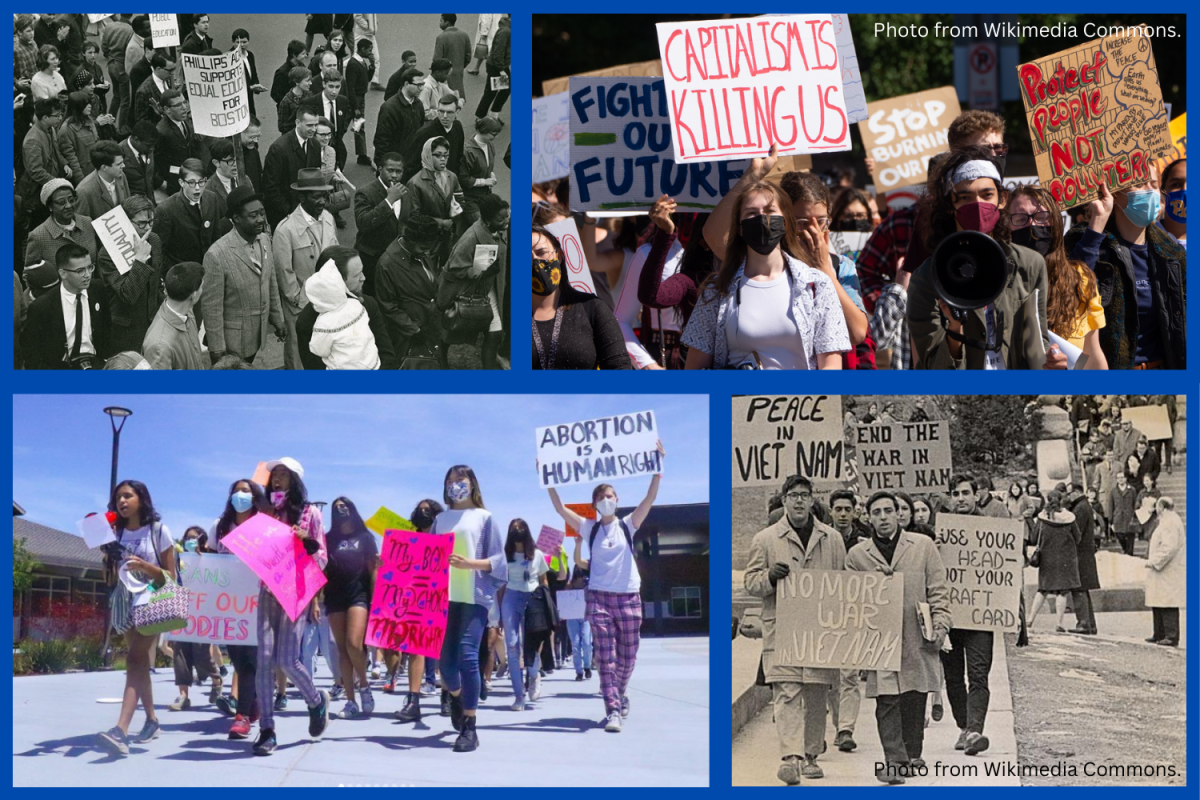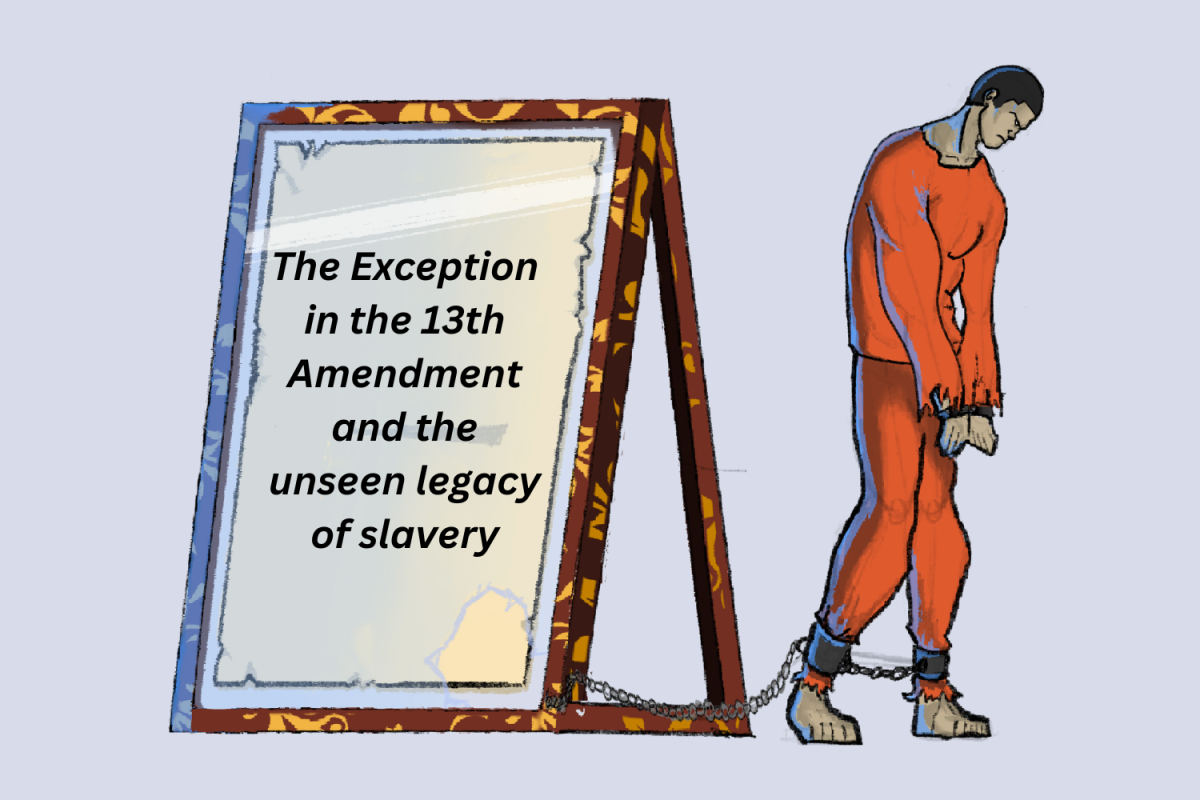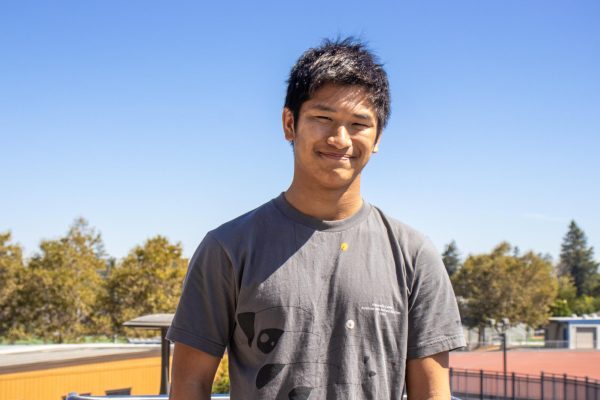What once took the form of old piles of political newspaper ads have gradually transformed into versatile digital formats, marking a new era of politics as younger voters increasingly promote their ideologies online. Over the course of history, youth activism has been critical in placing meaningful pressure on traditional political parties or structures. Yet, despite the record-high young voter turnout of 55% in the 2020 presidential election, there has been a growing concern of apathy among them. Based on statistics from the United States Census Bureau, voters between the ages of 18 and 24 still have the lowest percentage of voter turnout.
“The young voters’ vote constituency isn’t the largest by any means, but I do believe that the percentage of young voters is increasing when comparing them over the years,” said Brittany Adams, Department Chair of the Humanities and Professor of History and Gender Studies at Irvine Valley College. “The more that students vote, the more their issues are going to get attention.”
There are traditionally two main political parties people identify with in the modern-day: Democrats and Republicans. These parties often face little incentive to reform, but the emergence of third parties — often driven by young voters — can change this dynamic.
For instance, the Green Party places emphasis on environmental activism and social justice, serving as a viable alternate option for young voters who feel disillusioned by the current political system. For the 2024 presidential election, the Green Party endorsed Jill Stein, a physician and activist, as their presidential candidate.
Historically, the Green Party gained traction among young voters in the 1980s; however, it wasn’t until the controversial election of 2000 between George W. Bush and Al Gore that Democrats and Republicans took notice. If Green Party voters in Florida had voted for Gore, then Gore would’ve won. Thus, while young voters or third parties themselves have little chance of winning, they still hold significant power in swing states.
“In states where it’s like 45% Democrats and 50% Republicans — and you just need to get over 51% — that means that it’s only a small percentage of eligible voters who really matter,” social studies teacher and department chair Steven Roy said.
Throughout history, young political activists have made up for their lack in numbers with powerful spirit and rhetoric. Dating back to the Vietnam War from the 1960s to 1970s, young adults organized anti-war protests on college campuses upon seeing the relentless disaster in Vietnam for both American and Vietnamese citizens. Their invigorating efforts gained the traction of media outlets. In the end, former President Richard Nixon took advantage of this momentum to appeal to more voters by promising to pull out of the Vietnam War and conduct peace negotiations.
Youth involvement in politics has extended to concern the social structures impacted by various new laws as well. Such was the case during the Black Lives Matter movement, which was popularized in 2013 and advocated for racial equity for Black Americans. As the issue of systemic racism progressed, young Americans drove widespread calls for police reform to pressure local police departments into reforming their officer training curriculum. Once thought of as impossible, police officers started to face serious repercussions for their actions in some instances.
As the 2024 election campaign nears its final stretch before election day on Nov. 5, young voters and politicians have used social media as an opportunity to engage more of their community. In particular, the campaign of Vice President and presidential candidate Kamala Harris has taken the internet by storm with various trends and memes, largely appealing to a younger audience. These include her quote saying, “You think you just fell out of a coconut tree?” — which was originally mockingly used against her by Republicans, but later embraced by Harris. Celebrities have also used their massive online presence to endorse their favorite candidates, such as British pop singer Charli XCX and American pop singer Taylor Swift.
Likewise, former President and presidential candidate Donald Trump gained popularity and sympathy from the public following his assassination attempt in July 2024 at a rally in Pennsylvania. Through social media, images of his fist raised immediately after the shooting evoked a sense of patriotism and unity amongst his voters.
However, James Nguyen, instructor and political science department chair at De Anza College, said in an email interview with the Epic that while social media exposes students to diverse perspectives and encourages engagement, it can also create echo chambers that deepen polarization. In his classes, he has seen this polarization as discussions became more intense. Consequently, he shifted his curriculum to focus more on critical thinking and media literacy, thus allowing students to delve into real-world issues analytically.
“Social media users tend to phrase stories in a way to get you to believe what they believe,” junior Ishana Subrahmanyan said. “Media can really influence one’s political opinion and impede people from forming opinions of their own.”
While conventional sources of news include reporting channels and newspapers, the increasing integration of technology in the modern world has allowed for more alternative sources of information; most notably on social media platforms such as Instagram or TikTok, which can be far more attractive to youths less inclined to sources such as news articles.
“I started caring about politics after seeing important world events on social media,” senior Evan Lu said “I get really bored by the news, but social media is optimized for maximum engagement and makes it easy to learn about information. A lot of younger people use social media, and it is a good space to be exposed to more ideas.”
Still, as a general trend, young voter turnout has increased consistently. While their motives for voting have shifted from the fear of getting drafted for war during the 1900s to concerns over personal liberties, their influence and youthful spirit have remained the same.
“I think it’s important for us to be aware about politics,” junior Sanika Vaidya said. “People sometimes say ‘I don’t really care about politics’ — but that’s not helpful, because we’re the ones who will have to deal with the consequences of future policies, so we should know what’s going on.”




































































